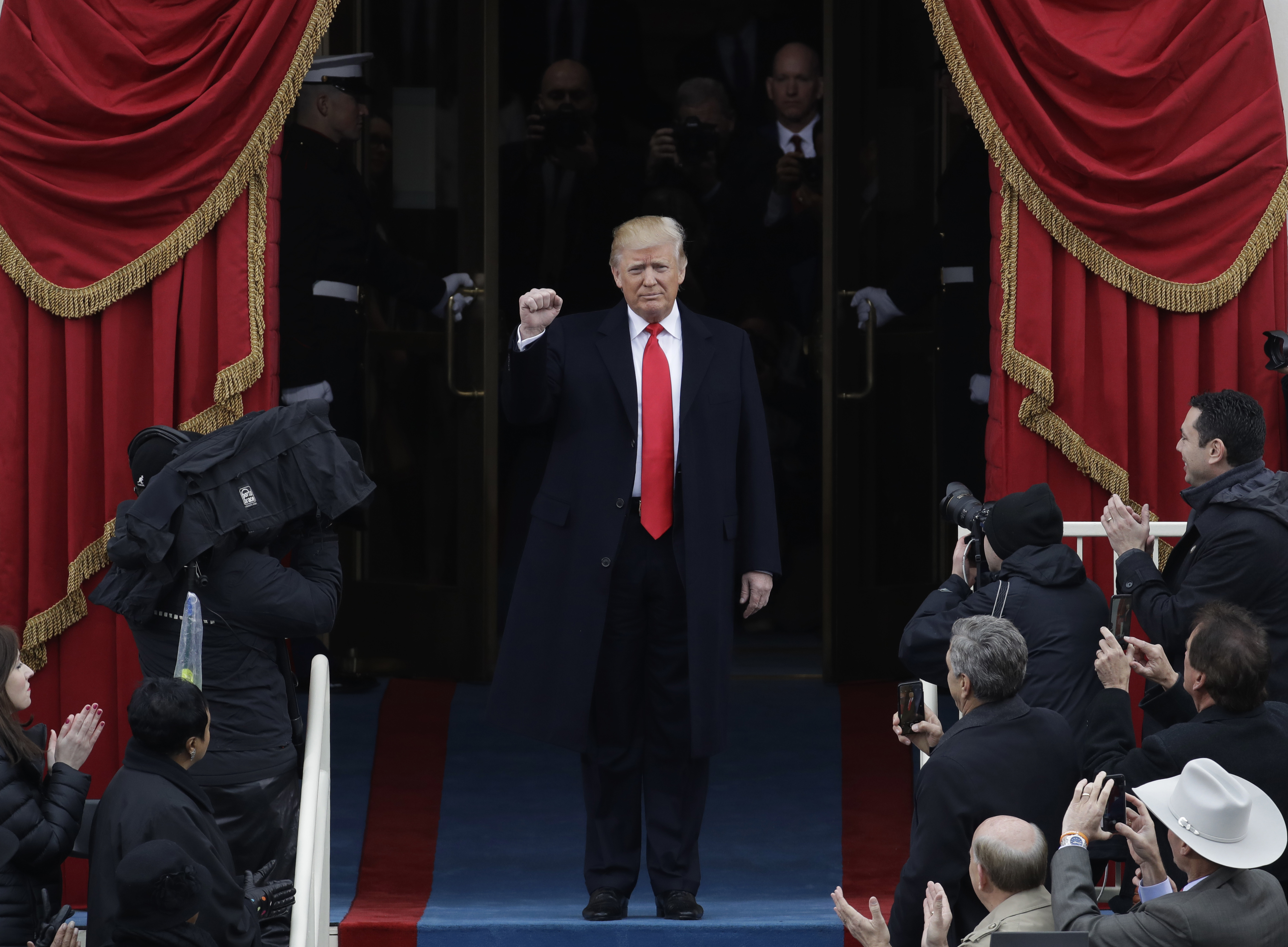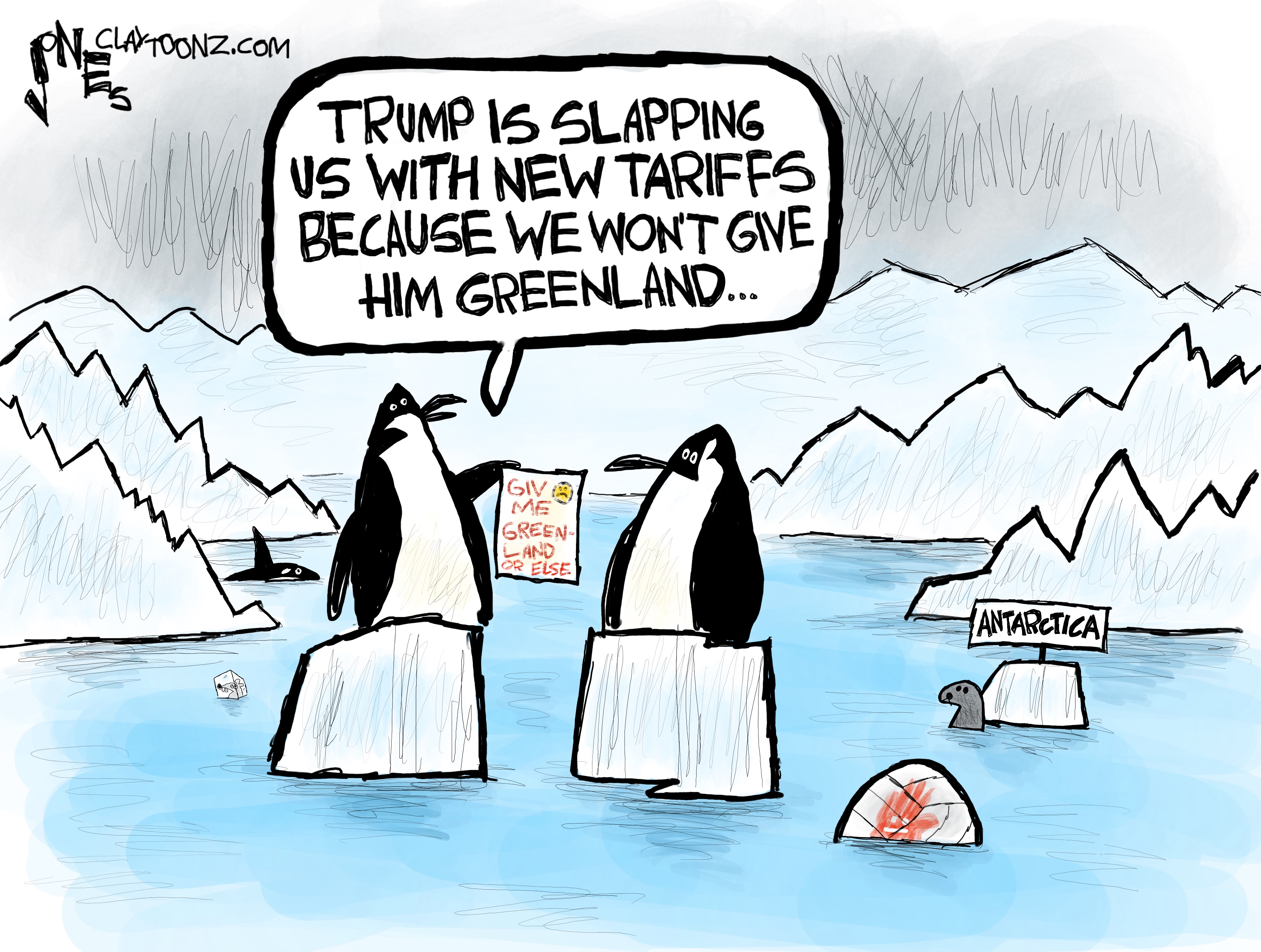The rise of Trump isn't all about racism
Stop denouncing the 'white supremacy' of 63 million Trump voters. It is both inaccurate and unhelpful.


For a certain group of influential left-of-center analysts and pundits, it's become increasingly self-evident that Donald Trump's victory in the 2016 presidential contest was a function of one factor above all others: racism.
These liberal analysts acknowledge other factors too, of course. Yes, Vladimir Putin meddled and the Trump team probably at least tried (ineptly, it seems) to collude. Yes, James Comey made unprofessional blunders. Yes, the media had it in for Hillary Clinton. And yes, her campaign was guilty of hubris and unforced errors. But the real culprit, they claim, was the ideology of "white supremacy" that dominates American history, persists among many or even most white voters, and reached a fever pitch in reaction to eight years of a black president.
Those convinced that racism is to blame for the rise of Trump now have a formidable new weapon in their arsenal: a new essay in The Atlantic by Ta-Nehisi Coates with the stop-you-in-your-tracks title of "The First White President."
The Week
Escape your echo chamber. Get the facts behind the news, plus analysis from multiple perspectives.

Sign up for The Week's Free Newsletters
From our morning news briefing to a weekly Good News Newsletter, get the best of The Week delivered directly to your inbox.
From our morning news briefing to a weekly Good News Newsletter, get the best of The Week delivered directly to your inbox.
Coates is a stunningly powerful writer, penning essays that are deeply informed historically, animated by a fiery passion for racial justice, and shot through with unshakable sadness at how unlikely it is that such justice will ever be done. He writes like a prophet, rendering judgment from on high but with his heart kept low to the ground, in communion with his fellow African Americans and their unending struggles in a land that perennially fails to treat them as equals, and just as perennially fails to acknowledge the extent and persistence of that failure. Every American should read and learn from him.
But that doesn't mean he's infallible — and his new essay on Trump, like the claims of those left-of-center analysts and pundits that it will fortify, is seriously misguided.
No serious-minded person denies that race was an important factor in the 2016 election. Trump launched his political career by accusing a black president of being illegitimate and un-American. He announced his presidential campaign by demagogically describing Mexican immigrants as rapists and drug dealers. He spoke on the stump of imposing a "Muslim ban."
What Coates wants to establish isn't that these racially charged statements and actions (and many other recounted in the essay) happened, since we're all well aware of them. What he wants to establish is that Trump won the 2016 election above all because of these statements and actions. Trump's base is white America, and white America thrilled to his message of racial repudiation — a repudiation of dark-skinned immigrants; of evidence of police brutality directed against people of color; of the members of a religion from another part of the world; and most of all, of "the fact of a black president." That absolute negation of color in the name of whiteness is something new in the history of the United States, and it's what makes Trump "America's first white president," Coates contends.
A free daily email with the biggest news stories of the day – and the best features from TheWeek.com
But is that really true? Is Trump's electoral triumph really first and foremost an expression of the ideology of white supremacy? Coates devotes long stretches of his essay to arguing against various alternative explanations of Trump's victory, especially those that highlight the economic struggles and status anxieties of the white working class. As far as Coates is concerned, this is just the latest example of "the myth" of virtuous working-class whites that has so often been used to conceal the "sins of whiteness itself."
Yet Coates is too intellectually honest to pretend that any monocausal explanation of something as multifaceted as a narrowly won presidential election in which nearly 129 million votes were cast would be adequate. Though he doesn't seem especially happy about it.
Responding to The New Yorker's George Packer, who wrote that white working-class support for Trump and the GOP in recent election cycles can't "be attributed just to the politics of race," Coates becomes irritable:
This is likely true — the politics of race are, themselves, never attributable 'just to the politics of race.' The history of slavery is also about the growth of international capitalism; the history of lynching must be seen in light of anxiety over the growing independence of women; the civil rights movement can't be disentangled from the Cold War. Thus to say that the rise of Donald Trump is about more than race is to make an empty statement. [The Atlantic]
No, it's to make a true statement — and one that long passages of Coates' own essay seems to deny.
Why would Coates deny it when he knows better? I suspect it's because he's wedded to a view of American history that so emphasizes the centrality of racial injustice that he ends up constantly tempted to reify racial categories and even endorse notions of collective guilt and victimhood. This may be what leads him to write in sweeping terms about "sins of whiteness" and to claim that no explanation of the 2016 presidential race has the power to "cleanse the conscience of white people for having elected Donald Trump."
But "white people" didn't elect Donald Trump. A coalition of 62 percent of white men, 52 percent of white women, 13 percent of black men, 4 percent of black women, 32 percent of Latino men, 25 percent of Latino women, and 27 percent of Asians elected Donald Trump. "White supremacy" surely played an important role for some of those white voters. But it should be obvious that it can't be a sufficient explanation of the outcome overall — unless we begin to talk in terms of racial false consciousness.
Unfortunately, Coates occasionally does exactly that. In what is easily the most disturbing passage of Coates' justly lauded memoir Between the World and Me, he recounts the story of the death of a black friend at the hands of a police officer we eventually learn was also black. Instead of leading to a complex moral judgment of the tragic event, Coates treats it as a straightforward example of the evils of structural racism in which the black officer passively participated. Coates' new essay similarly accuses Bill Clinton, Bernie Sanders, and even Barack Obama of complicity in the thoroughly racial system that ultimately produced President Trump.
There are signs, once again, that Coates knows better. "Certainly not every Trump voter is a white supremacist," he writes at one point, "just as not every white person in the Jim Crow South was a white supremacist." Yet he also understands that if this is true, then Donald Trump might not deserve the title of America's First White President. Which may be why Coates adds a crucial addendum to this concession: Every Trump voter may not have been a white supremacist, "but every Trump voter felt it acceptable to hand the fate of the country over to one."
And there's the rub: Coates' entire analysis stands or falls on the reader's willingness to elide the moral distinction between voting for Trump because he's a white supremacist and voting for Trump despite the fact that he's a white supremacist.
In this respect, Coates' argument resembles the highly tendentious one found in Daniel Jonah Goldhagen's book Hitler's Willing Executioners, which sought to assign collective guilt for the Holocaust to all Germans, whom Goldhagen held responsible for developing, affirming, and enacting the murderous ideology of "eliminationist anti-Semitism" that defined the Nazi regime. One became complicit just by being there.
The passage of the essay about George Packer, in which Coates dismisses efforts at identifying extra-racial causes for Trump's rise as "empty statements," does not end there. It goes on to say that pointing to those other causes "is small comfort to the people — black, Muslim, immigrant — who live under racism's boot."
That may well be the case. But shouldn't writing and thinking, the effort of analyzing and understanding, aim for something more than "comfort"? Shouldn't it aim, instead, at the truth, however exigent? However painful? However unsettling?
Here are some unsettling truths: Trump won. Some voted for him because they're white supremacists, but others did for a range of other reasons (party loyalty, negative partisanship, anger about economic stagnation, resentment in response to cultural despair and decline, Clinton hatred fueled by a mix of right-wing media and foreign meddling, and on and on). Trump voters of all kinds aren't going anywhere. They are our fellow citizens and have the right to vote. Many of them probably aren't persuadable by left-of-center candidates, but some of them probably are. Moving beyond Trump and reversing the agenda of his presidency will require appealing to some of these voters.
And denouncing them all as racists is as unhelpful as it is inaccurate.
Damon Linker is a senior correspondent at TheWeek.com. He is also a former contributing editor at The New Republic and the author of The Theocons and The Religious Test.
-
 Political cartoons for January 19
Political cartoons for January 19Cartoons Monday's political cartoons include Greenland tariffs, fighting the Fed, and more
-
 Spain’s deadly high-speed train crash
Spain’s deadly high-speed train crashThe Explainer The country experienced its worst rail accident since 2013, with the death toll of 39 ‘not yet final’
-
 Can Starmer continue to walk the Trump tightrope?
Can Starmer continue to walk the Trump tightrope?Today's Big Question PM condemns US tariff threat but is less confrontational than some European allies
-
 The billionaires’ wealth tax: a catastrophe for California?
The billionaires’ wealth tax: a catastrophe for California?Talking Point Peter Thiel and Larry Page preparing to change state residency
-
 Bari Weiss’ ‘60 Minutes’ scandal is about more than one report
Bari Weiss’ ‘60 Minutes’ scandal is about more than one reportIN THE SPOTLIGHT By blocking an approved segment on a controversial prison holding US deportees in El Salvador, the editor-in-chief of CBS News has become the main story
-
 Has Zohran Mamdani shown the Democrats how to win again?
Has Zohran Mamdani shown the Democrats how to win again?Today’s Big Question New York City mayoral election touted as victory for left-wing populists but moderate centrist wins elsewhere present more complex path for Democratic Party
-
 Millions turn out for anti-Trump ‘No Kings’ rallies
Millions turn out for anti-Trump ‘No Kings’ ralliesSpeed Read An estimated 7 million people participated, 2 million more than at the first ‘No Kings’ protest in June
-
 Ghislaine Maxwell: angling for a Trump pardon
Ghislaine Maxwell: angling for a Trump pardonTalking Point Convicted sex trafficker's testimony could shed new light on president's links to Jeffrey Epstein
-
 The last words and final moments of 40 presidents
The last words and final moments of 40 presidentsThe Explainer Some are eloquent quotes worthy of the holders of the highest office in the nation, and others... aren't
-
 The JFK files: the truth at last?
The JFK files: the truth at last?In The Spotlight More than 64,000 previously classified documents relating the 1963 assassination of John F. Kennedy have been released by the Trump administration
-
 'Seriously, not literally': how should the world take Donald Trump?
'Seriously, not literally': how should the world take Donald Trump?Today's big question White House rhetoric and reality look likely to become increasingly blurred
